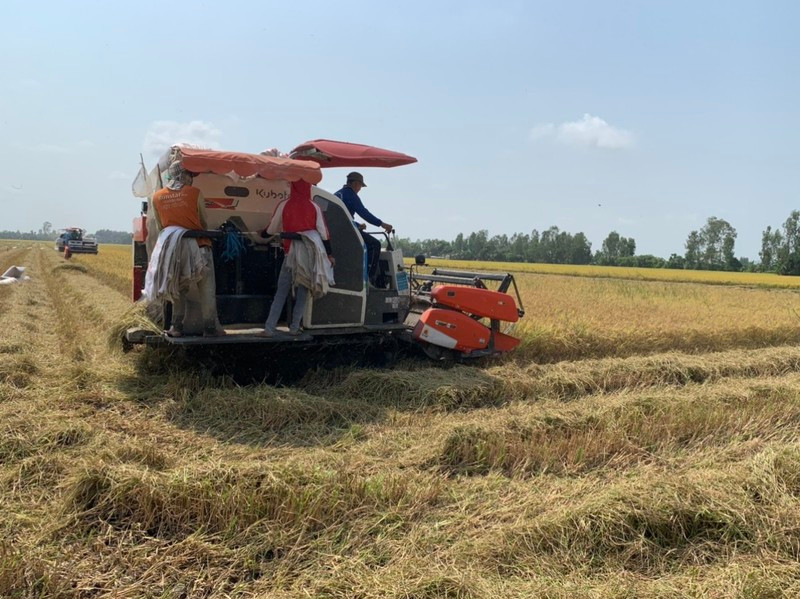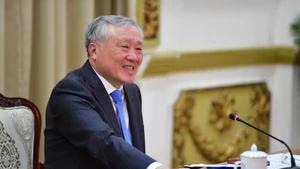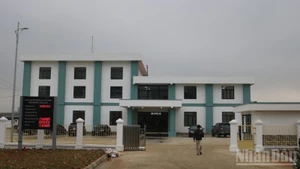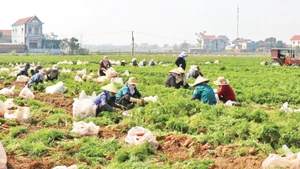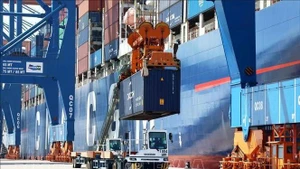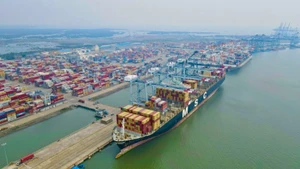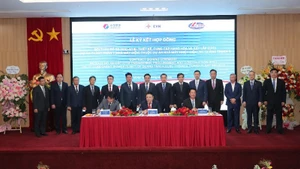Closely monitoring the domestic rice market
Facing the situation that the domestic rice market is constantly fluctuating, due to the influence of the world rice export market, Directive No.07/CT-BCT clearly stated that the Vietnam Directorate of Market Surveillance directs the market management force at the local level, to strengthen coordination with local authorities to closely monitor the situation of rice prices, inspect and control business establishments, wholesale and retail outlets, markets, supermarkets, trade centres, warehouses to control supply, selling prices, prevent violations of price listing, speculation, hoarding, and unreasonable pricing for rice products.
In addition, local market management forces need to strengthen inspection and prevent the transportation and trading of rice of unknown origin; strictly handle violating organisations and individuals, according to the provisions of the law; coordinate with the Import-Export Department to inspect the implementation of the law on rice export business following the Government’s Decree No. 107/2018/ND-CP, dated August 15, 2018, on rice export business.
In addition, the Domestic Market Department must also closely monitor the market situation, proactively directing the local Department of Industry and Trade to have a plan to prepare the supply, ensure the quality and balance the supply and demand of rice products in the domestic market; fully and promptly meeting the needs of the people, contributing to stabilising rice prices in particular and food prices in general, and ensuring national food security.
Supporting businesses to promote rice exports
The world rice market is increasingly vibrant and the demand of many rice-importing countries is still high because some countries still maintain a ban on rice exports, so it is easy for related problems to arise.
Therefore, the Ministry of Industry and Trade has requested the Trade Remedies Department to carry out activities to warn of the risk of trade defence investigations, prevent evasion of trade defence measures, and assist rice traders in exporting rice.
The Department of Multilateral Trade Policy during negotiations at bilateral and multilateral forums, should coordinate with the Import-Export and Foreign Market Departments, to negotiate market opening and non-tariff measures. for rice products to remove barriers and facilitate Vietnam's rice exports; at the same time, take advantage of the process of reviewing agreements that have been put into effect to propose to partners to open more doors and increase tariff quotas for Vietnamese rice products.
On the other hand, it is necessary to build an ecosystem to support the rice industry to effectively take advantage of free trade agreements; timely information on advantages, difficulties and issues needing attention for Vietnam’s rice exports, to markets that Vietnam has signed and participated in bilateral and multilateral agreements.
Particularly for rice production and export markets such as India, Thailand, Pakistan, and Cambodia, the Vietnam Trade Office in the host country should increase proactively, updating the production season situation, rice prices in the local market, export situation and policy-moves related to the volatile global food market context; regular or irregular information about the Import-Export Department and Foreign Market Departments.
In addition, the Vietnam Trade Office in the host country needs to monitor the implementation situation and promptly promote negotiations to extend the signed Memoranda of Understanding on rice trade; strengthen the search for opportunities to sign rice trade agreements with new and potential markets; preside over monitoring and supporting designated focal enterprises to implement the Rice Trade Memorandum and other rice export traders, to seek opportunities to promote rice exports in markets.
